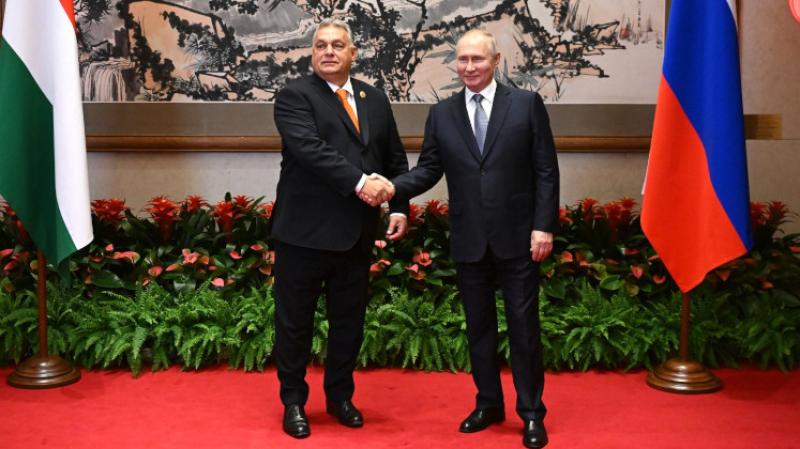The EU's continued trade with Russia undermines its support for Ukraine
By: Ousmene Jacques Mandeng (The London School of Economics: EUROPP)


Russia is still more important to the EU than is Ukraine. As the article explains, the EU is pumping as much money into Russia as is being pumped into Ukraine. How much debt is the United States supposed to dump on taxpayers backs to support this war effort?

October 9th, 2024 -- The European Union has launched a series of measures to contain Russia following its full-scale invasion of Ukraine. Yet, the effectiveness and extent of these measures remain in doubt.
The EU has a cumulative merchandise trade deficit with Russia of US$120 billion since Russia's full-scale invasion of Ukraine or 5 percent of Russia's annual GDP. This net transfer of resources to Russia is in stark contrast to the EU's rhetoric, which claims that it will "remain determined to keep acting to further reduce Russia's sources of revenue and capacity to wage war". The EU's approach to Russia is self-defeating and risks prolonging the war.
Why trade balance matters
Trade balance is a measure of the transfer of net resources from one country to another. The greater the deficit vis-a-vis one country, think of the US-China trade deficit disputes, the more the deficit country transfers resources to its trading partner.
While Russia's foreign exchange reserves had been frozen in March 2022, the cumulative net transfer from the EU has allowed Russia to rebuild a large proportion of foreign financial resources. International banks show an increase in cross-border liabilities vis-a-vis residents of Russia from US$155 billion in March 2022 to US$254 billion in March 2024. This may also explain why Russia's economy has been doing relatively well.
The EU's trade deficit with Russia has been declining since March 2022, but it took unduly long and EU member countries' efforts differ significantly. It took one year to decline from a post-pandemic peak deficit of US$19.5 billion in March 2022 to a surplus of US$0.7 billion in March 2023. In January-May 2024, the average trade deficit with Russia of Hungary was still US$0.3 billion and of Slovakia US$0.4 billion per month.
Explaining the trade deficit
The EU's trade deficit with Russia is largely due to its persistent mineral fuel imports. EU cumulative mineral fuel imports from Russia since March 2022 through May 2024 amount to US$166 billion. They fell from an average of US$10.6 billion per month during January-May 2019 to US$2.0 billion per month or 19 percent of their pre-war level.
Yet, the decline is not universal. Belgium still imports 54 percent of its pre-war level, Spain 58 percent, the Czech Republic 77 percent, Slovakia 88 percent and Hungary 138 percent. In contrast, Germany imports only 1 percent of its pre-war level.
Russian gas still enjoys high imports at 83 percent of pre-war levels. In January-May 2024, Belgium and the Netherlands were importing more than two times more Russian gas than prior to the war and Spain seven times. Hungary, the largest importer of Russian gas in the EU, imported nearly double the amount in January-May 2024 compared with January-May 2019.
Recent observations that India has ramped up mineral fuel imports from Russia have been met with considerable concern. India indeed increased mineral fuel imports from Russia during January and May 2019 from an average of US$0.3 billion per month to US$3.9 billion per month during January and May 2024.
A contradictory approach
The EU's stance vis-a-vis Russia contradicts its ambitions. Blaming India for financing Russia through mineral fuel imports is the right thing to do. It serves as a reminder how important it is to curtail imports from Russia.
Maintaining stable levels of imports amid possible structural constraints related to pipeline and refinery layouts is one thing but ramping up imports is quite another. To argue that changing existing dependencies from Russia would be too costly is to underestimate greatly the enormous humanitarian and economic costs of war.
The EU's piece-meal approach - the EU is on its 14th sanction package against Russia - has endowed Russia with significant sources of revenue it can use to continue fighting the war. The EU demands its citizens provide resources to support Ukraine on the one hand while it continues to tolerate huge net transfers to Russia on the other hand.
Since Russia's full-scale invasion of Ukraine, the EU claims to have supported Ukraine through financial and military assistance with US$121 billion. During that period, the EU has cumulated a trade deficit with Russia of the same amount. This cannot possibly be a sensible approach to support Ukraine and reduce Russia's capacity to wage war.
Note: This article gives the views of the author, not the position of EUROPP - European Politics and Policy or the London School of Economics. Featured image credit: kremlin.ru





Just how much money is the United States pumping into Europe to buy Russian gas? Europe won't fight. And Europe won't pass up an opportunity to exploit an energy shortage to make its rich richer.
It's the American taxpayer who gets the dirty end of the stick.